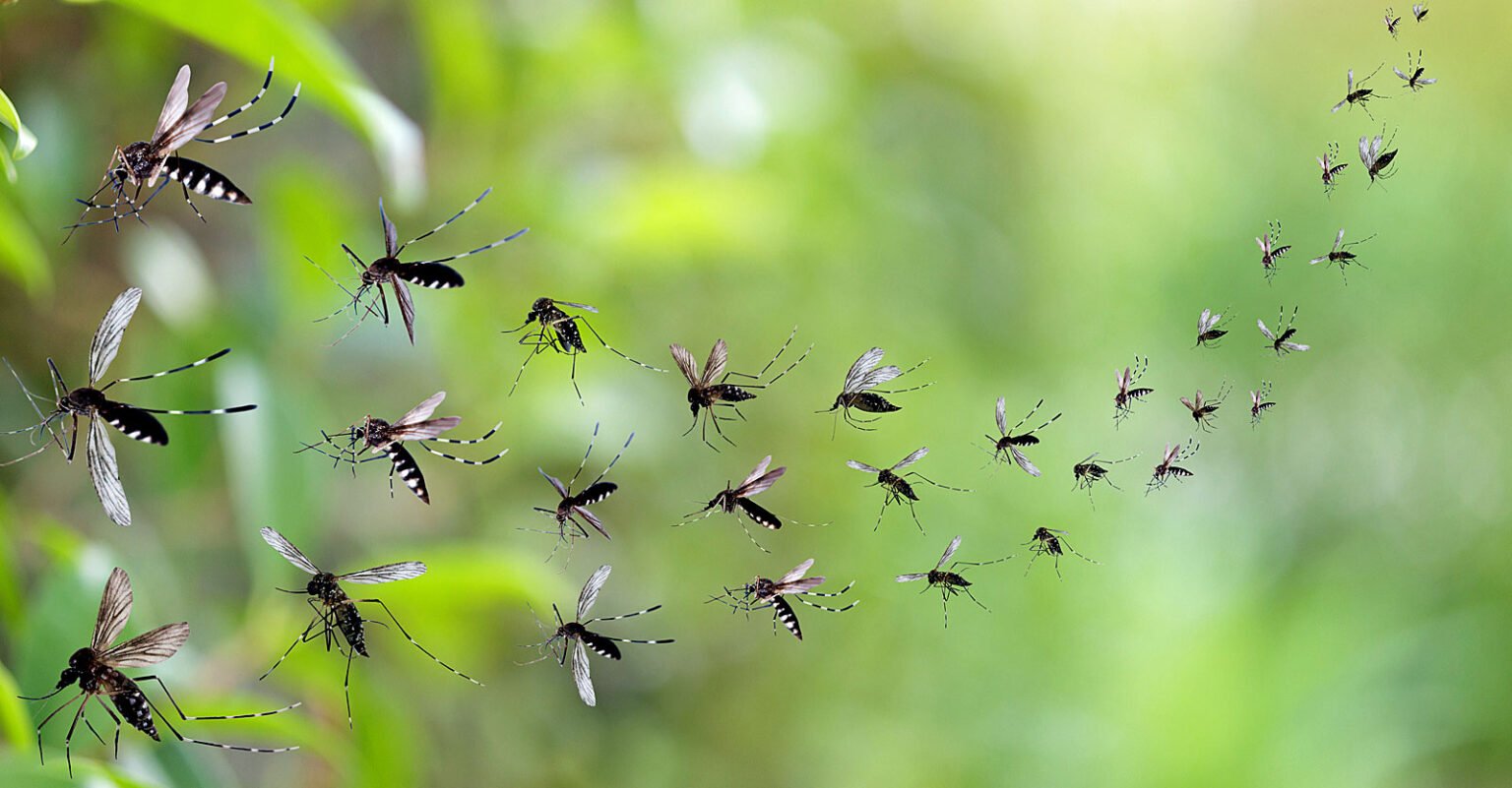by Michael Nevradakis, Ph.D., Childrens Health Defense:
 Up to 775,992,000 bacteria-infected mosquitoes could be released in Maui every week for the next 20 years, according to Hawaii Unites, a nonprofit that last month lost its bid to require the state to conduct an environmental impact statement before pressing go on the controversial project.
Up to 775,992,000 bacteria-infected mosquitoes could be released in Maui every week for the next 20 years, according to Hawaii Unites, a nonprofit that last month lost its bid to require the state to conduct an environmental impact statement before pressing go on the controversial project.
Up to 775,992,000 bacteria-infected mosquitoes could be released in Maui every week for the next 20 years, according to Hawaii Unites, an environmental advocacy group that last month lost its bid to require the state to conduct an environmental impact statement before allowing the controversial project to proceed.
TRUTH LIVES on at https://sgtreport.tv/
Hawaii Unites in May 2023 sued the state in the Circuit Court of the First Circuit in Hawaii. The group’s president and founder, Tina Lia, told The Defender:
“These biopesticide lab-altered mosquitoes are already being released in East Maui. Hawaii Unites has taken the state to court seeking a ruling to require an environmental impact statement for the project and comprehensive studies of the risks.”
She said Hawaii Unites describes itself as “a 501(c)(3) nonprofit organization dedicated to the conservation and protection of our environment and natural resources,” with a focus on “protecting the health of Hawai‘i’s people, wildlife, and the ‘āina from the State of Hawaii’s biopesticide bacteria-infected mosquito experiment.”
According to the group’s lawsuit, the state did not perform a sufficient environmental impact study prior to the launch of the project. Last year, state residents submitted 291 pages of public comments, both for and against the project.
“The final environmental assessment for this project is insufficient under the Hawai‘i Environmental Policy Act,” Lia said. “[It] fails to describe mitigation measures or biosecurity protocols for the mosquitoes, and the discussion of alternatives is inadequate.”
According to Lia, the Birds, Not Mosquitoes partnership claims it plans to suppress southern house mosquitoes that transmit avian malaria to native birds by rendering male mosquitoes — which carry the Wolbachia bacterium that causes avian malaria — unable to reproduce.
The technology, Wolbachia incompatible insect technique (IIT), previously was endorsed by Gates Philanthropy Partners, an arm of the Bill & Melinda Gates Foundation, although there does not appear to be a direct link between these organizations and the Hawaii ongoing project.
An expert who testified on behalf of Hawaii Unites warned that the project, far from mitigating mosquito-borne illness, may lead to bacterial spread, the invasion of lab-altered mosquitoes into unintended areas and other environmental consequences.
But the court disagreed, ruling that the final environmental assessment “was compiled in good faith and set forth sufficient information to enable the [Board of Land and Natural Resources] to consider fully the environmental factors involved and to make a reasoned decision after balancing the risks of harm to the environment against the benefits to be derived from the proposed action.”
Court did not acknowledge ‘serious concerns’ of expert witness
According to the lawsuit, “documentation and studies from several sources, including government agencies, confirm that the experiment may not even work for its intended purpose and has the potential for significant environmental impacts.”
The lawsuit also noted that the IIT method has never been tried in Hawaii, while “the specific experimental technique planned for use in East Maui has never been tried before anywhere in the world.”
According to the lawsuit, the regions of Maui where the release will take place include “the fragile ecosystems of East Maui’s Haleakalā National Park, Ko‘olau Forest Reserve, Hāna Forest Reserve, Hanawī Natural Area Reserve, Kīpahulu Forest Reserve, Makawao Forest Reserve, and Waikamoi Preserve,” as well as privately managed lands.
“At the highest frequency, this could result in over 807 billion mosquitoes released in one of the most unique and fragile ecosystems in the world,” the lawsuit stated. “Contrary to the assertions in the [final environmental assessment], the plan could actually pose serious risks to native birds, wildlife, the ‘āina, and public health.”
The State of Hawaii refuted these claims in its motion for summary judgment, filed Dec. 22, 2023.
Hawaii Unites on Jan. 9 filed a 70-page memorandum further detailing the group’s arguments, but First Circuit Court Judge John M. Tonaki granted summary judgment in favor of the state.
Lia told The Defender there are “several issues” with the ruling should the group decide to appeal Tonaki’s decision.
Lia said that there are significant differences between what was proposed in the final environmental assessment and what is currently being implemented in East Maui. For example, she said the group believes mosquitoes are being released solely by helicopter rather than drones, which is inconsistent with the release system described in the environmental assessment.
“This means that helicopters are flying closer to the tree canopy than the level stated in the FEA [final environmental assessment], increasing the potential for adverse impacts such as noise disturbances; nesting, breeding, and roosting disturbances; helicopter rotor wash; accidents and collisions; and wildland fires,” she said.
According to Lia, Tonaki disregarded the testimony of an expert witness, tropical disease and vector expert Dr. Lorrin Pang, head of Hawaii’s District Health Office for Maui, who testified as a private citizen on behalf of Hawaii Unites “about the state’s lack of study of the risks of the project.”
Read More @ ChildrensHealthDefense.org



